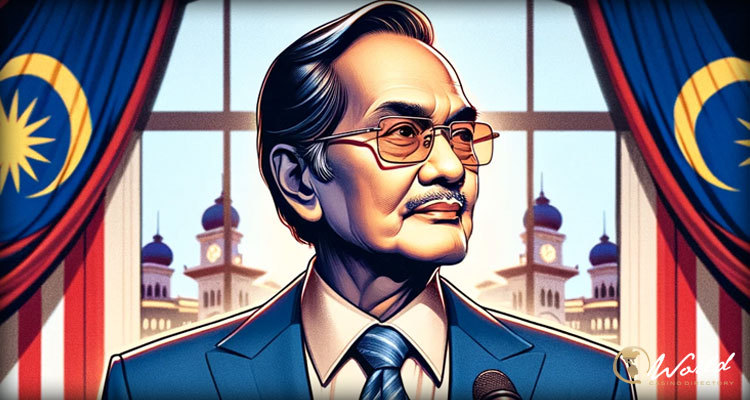Malaysian Prime Minister Anwar Ibrahim’s recent declaration categorically rebuffing the notion of approving a second casino in Malaysia has stirred significant discourse within the nation. During an exclusive interview with Bloomberg TV’s Haslinda Amin at the Qatar Economic Forum on May 14, Anwar left no room for ambiguity, firmly asserting, “Affirmative no,” when questioned about the possibility of granting permission for another casino establishment.
Prioritizing national development:
Anwar’s stance reflects a broader governmental strategy centered around prioritizing avenues for national advancement beyond the realm of the gaming industry. In elaborating on this standpoint, Anwar articulated that Malaysia’s strategic focus remains directed towards key areas such as digital transformation, energy transition, and advancements in artificial intelligence. According to The Straits Times, he emphasized, “There’s no necessity for Malaysia to venture into the casino business,” underlining a deliberate shift towards sectors deemed more conducive to fostering sustainable economic growth and societal progress.
The context surrounding Anwar’s resolute statement stems from recent reports hinting at discussions concerning the potential establishment of a casino within Forest City, a prominent property development located in Johor state, proximate to Singapore. However, Anwar swiftly quashed speculations regarding this prospect, affirming that there are no plans to issue a casino license for Forest City. He vehemently dismissed the report as a baseless fabrication, explicitly refuting claims of any meeting involving key industry figures such as Vincent Tan and Lim Kok Thay.
Despite Anwar’s firm rebuttal, the aftermath of the report has not been devoid of controversy. Malaysian authorities have initiated legal proceedings against several individuals accused of disseminating seditious remarks on social media and private messaging platforms in connection with the casino resort. This underscores the sensitivities surrounding discussions related to gambling within the Malaysian socio-cultural landscape.
The historical context of Malaysia’s casino industry further accentuates the gravity of Anwar’s stance. With only one casino license granted in the nation’s history, awarded to Genting in 1969, the topic of gambling has long been a subject of debate and contention. Before the onset of the global pandemic, Genting’s operations played a pivotal role in bolstering the government’s revenue, contributing an estimated RM5 billion annually, as reported by UOB-Kay Hian Holdings, a prominent Singapore-based brokerage.
Navigating controversy and cultural sensitivities:
Moreover, the religious and cultural dynamics prevalent within Malaysia add additional layers of complexity to discussions surrounding the proliferation of casinos. In light of Bloomberg’s report, Johor Chief Minister Onn Hafiz Ghazi reiterated the state’s firm stance against permitting casino operations within its jurisdiction, echoing sentiments reflective of the broader sentiments within Malaysia’s Muslim-majority populace.
Anwar Ibrahim’s unequivocal stance against the approval of a second casino underscores a paradigmatic shift in Malaysia’s strategic outlook, signaling a concerted effort towards prioritizing sectors aligned with long-term sustainable development goals. As the nation navigates through this discourse, the implications of Anwar’s statement reverberate across both the economic and socio-cultural landscapes, shaping the trajectory of Malaysia’s future developmental trajectory.



